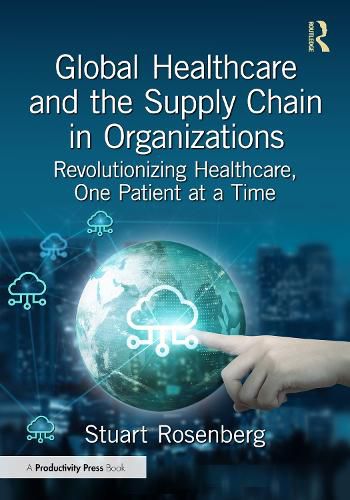Readings Newsletter
Become a Readings Member to make your shopping experience even easier.
Sign in or sign up for free!
You’re not far away from qualifying for FREE standard shipping within Australia
You’ve qualified for FREE standard shipping within Australia
The cart is loading…






Effective supply chain management (SCM) in healthcare significantly impacts various aspects, including cost reduction, improved patient care, and enhanced efficiency. By optimizing inventory, reducing waste, and streamlining processes, healthcare organizations can improve financial performance, ensure timely access to essential supplies, and ultimately deliver better patient outcomes.
SCM is essential for delivering high-quality care to improve patient experience. There is a large network of systems and processes that guarantee the delivery of medicines and supplies to healthcare institutions and patients. In addition, there are challenges to the supply chains such as disruptions, which force innovative strategies to mitigate negative consequences from these disruptions.
Ensuring that products end up with customers is an important objective for all businesses, but it is completely critical in healthcare. Lives depend on receiving supplies and medications on a timely basis. Collaboration and communications between all involved in the healthcare supply chain- suppliers, manufacturers, distributors, healthcare institutions, clinicians-facilitate this movement of goods, services, and information. Only then will hospitals and other healthcare institutions meet patient needs.
This book addresses many of the disruptors and delays experienced in the supply chain including regulatory compliance, fluctuating demand, systems' complexity, and visibility. The author also addresses how artificial intelligence (AI) is changing the supply chain as well as how digitalization has generated benefits and deliverables. The author shares his experience to examine the operational, regulatory, and strategic aspects in healthcare SCM as well as a look into the future and what is shaping the industry.
$9.00 standard shipping within Australia
FREE standard shipping within Australia for orders over $100.00
Express & International shipping calculated at checkout
Stock availability can be subject to change without notice. We recommend calling the shop or contacting our online team to check availability of low stock items. Please see our Shopping Online page for more details.
Effective supply chain management (SCM) in healthcare significantly impacts various aspects, including cost reduction, improved patient care, and enhanced efficiency. By optimizing inventory, reducing waste, and streamlining processes, healthcare organizations can improve financial performance, ensure timely access to essential supplies, and ultimately deliver better patient outcomes.
SCM is essential for delivering high-quality care to improve patient experience. There is a large network of systems and processes that guarantee the delivery of medicines and supplies to healthcare institutions and patients. In addition, there are challenges to the supply chains such as disruptions, which force innovative strategies to mitigate negative consequences from these disruptions.
Ensuring that products end up with customers is an important objective for all businesses, but it is completely critical in healthcare. Lives depend on receiving supplies and medications on a timely basis. Collaboration and communications between all involved in the healthcare supply chain- suppliers, manufacturers, distributors, healthcare institutions, clinicians-facilitate this movement of goods, services, and information. Only then will hospitals and other healthcare institutions meet patient needs.
This book addresses many of the disruptors and delays experienced in the supply chain including regulatory compliance, fluctuating demand, systems' complexity, and visibility. The author also addresses how artificial intelligence (AI) is changing the supply chain as well as how digitalization has generated benefits and deliverables. The author shares his experience to examine the operational, regulatory, and strategic aspects in healthcare SCM as well as a look into the future and what is shaping the industry.